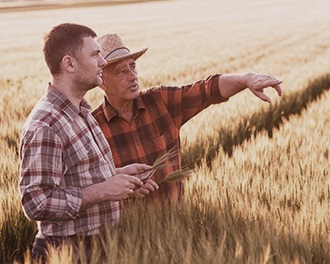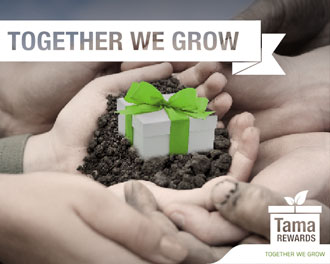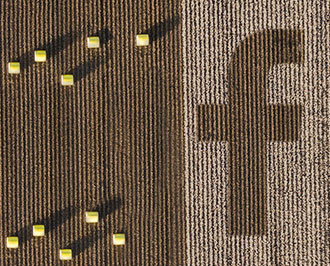Caring for people with breast cancer in the country — meet the McGrath Nurses making a difference
2020
Breast cancer is the most commonly diagnosed cancer in women. In fact, one in eight Australian women will be diagnosed… Read more
Breast cancer is the most commonly diagnosed cancer in women. In fact, one in eight Australian women will be diagnosed with the disease before they’re 85, and an additional 144 males will be diagnosed every year. That’s a lot of people. And if you live in a rural community, this means it’s likely that you or someone you know has been affected by it.
For anyone, finding out they have breast cancer can be frightening. However, for patients in rural areas the challenge of travelling long distances to access treatment can add extra layers of emotional and financial stress. And statistics show that living in the bush can reduce your chances of survival — 84% for rural areas vs. 90% for urban areas.
We don’t think it’s right that country women and men should suffer worse outcomes just because of where they live. So, in 2014 we decided to partner with the McGrath Foundation and produce pink hay wrap and silage film to raise money for their McGrath Breast Care Nurses. These specialist nurses provide physical, psychological and emotional support to families experiencing cancer across Australia, including in rural areas where care can be hard to find.
Since then, our farmers have got behind our charity campaign and have been turning their paddocks pink across Australia at harvest. So, we spoke to four McGrath Breast Care Nurses – Kate, Nicole, Fiona and Vanessa – working in country New South Wales, South Australia, and Queensland to find out why your support matters.
Could you tell us a little bit about yourselves?
Vanessa: We’re all registered nurses who have completed the specialist training needed to work as McGrath Breast Care Nurses.
Between us we have over 70 years of nursing experience.
Why did you become a McGrath Breast Care Nurse?
Kate: I have lived outside a metropolitan area my whole life and understand the struggles the community faces being far away from specialist cancer care. So, in 2013 I became a McGrath Breast Care Nurse so I could make a real difference to rural patients care and make their cancer experience a little bit easier.
Fiona: I became a McGrath Breast Care Nurse because I saw the difference a consistent support nurse made in helping individuals and their families cope better with cancer. Having the same nurse to advise, educate, monitor, support, and act as an advocate reduces the stress people often experience when they’re trying to navigate the health system alone. It can be overwhelming. However, knowing they’ve got someone who can help them through all of it gives them confidence and a much better experience.
What does a typical day in the office look like?
Vanessa: I’m based in Dubbo, NSW, and cover an area roughly the size of Great Britain. Luckily, I work alongside another wonderful McGrath Breast Care Nurse called Margie Collins.
Every day is different for me. I am constantly on the move between our offices at community health, home visits in the local area, and the oncology unit to touch base with patients coming in for appointments or treatment. I often visit patients at both public and private hospitals if they are having surgery. Due to the size of the area we cover, there are also lots of phone calls to make to provide support to people who have returned home in between treatments. A large portion of my time is also spent coordinating care and liaising with other health professionals in the team to ensure continuity of care. This takes away the stress of patients having to do this themselves — and that’s a good thing because they’ve got enough to worry about.
What are the specific challenges facing patients with breast cancer in rural areas and how can we overcome them?
Fiona: The distance between a patient’s home and their cancer care is one of the biggest challenges. The treatment schedule can be punishing, and depending on where they live, may even force them to relocate their lives to complete treatment (up to six weeks for radiotherapy). All of this can be financially stressful and very lonely, particularly if family members find it hard to visit.
Whilst living in a small community can be very supportive, it can also be difficult because everyone knows each other’s business. This can make it difficult to escape from well-meaning but often exhausting enquiries about the cancer.
I believe more government funding is needed to improve remote community transport services to healthcare. I also think better support is need for local clinicians for education to improve their skill base. And finally, I would like to see more local services be added to local areas like a visiting breast surgeon or oncology social worker.
What are the most rewarding parts of your job?
Nicole: It is so humbling when patients come through their treatment and say they could not have done it without me. It reminds me of why I do my job, especially during the hard times when I may feel overwhelmed. It is a privilege that these people allow me into their lives.
Kate: Seeing someone’s stress levels visibly decrease after spending time talking to them. I also love seeing people complete their treatment and transition into the survivorship phase and then getting messages from them at their yearly clearance.
What are the hardest parts of your job?
Vanessa: Even though the survival rates for breast cancer continue to improve, not every story is a successful one. Unfortunately, we still suffer losses to the disease and it’s always heartbreaking when we lose a patient.
Fiona: Like Vanessa, I find it incredibly hard when I lose a patient. And the remote nature of my work means I don’t usually have anyone I can have a face-to-face talk to about tough days — so it can feel a little isolating at times.
How active is your rural community in battling breast cancer in the bush?
Nicole: The community in Mount Isa and the surrounding areas are amazing! They host luncheons, balls, breakfasts, cupcake stalls and morning teas, and have raised over $60,000 for people with breast cancer this year alone. They have massive hearts and I honestly don’t think they could do any more than they are.
How important is it for patients to see symbols of support such as our pink silage bales?
Kate: Very important because it shows them that people are looking out for them and their family. Most people associate the pink colour with breast cancer, so buying pink coloured silage is a practical way for farmers to make a difference. The money goes directly to funding McGrath Breast Care Nurses, so their support is having a real and direct impact to helping people in rural areas.
Tama is proud to partner with The McGrath Foundation by donating between $5-$120 for every roll of Pink Trioplus™ silage film, Pink Silacover, and Pink Tama™ 4500m netwrap.





